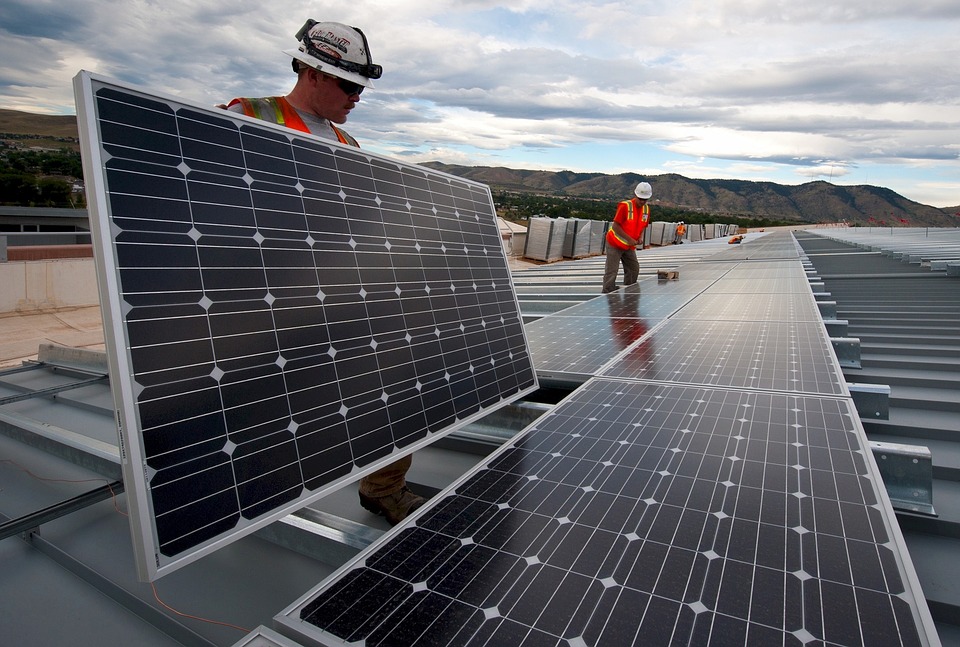If you read our last blog, you’ll have read all about the National Grid, and how whilst it has multiple benefits, if your business requires a reliable energy supply at all times, having onsite battery storage might be the best option for you.
Battery storage ensures customers can achieve more sustainable, secure and affordable energy; which holds the potential to generate revenue by selling energy back to the National Grid as and when they require it to meet their demands. When used by a business, it means they can avoid peak power prices; businesses using a high level of energy at peak times may pay more, by using a battery for power and recharging it during nighttime hours when energy prices are cheaper, it will save money.
A traditional energy system begins at the generation of power, flowing through transmissions until it’s distributed to either residential homes or business premises. The system is different when battery power is implemented; meaning that at generation there is the provision of capacity, during transmission there’s congestion release and for the customer they can rely on the power and boast an increased self consumption.
Many businesses are choosing to significantly increase the percentage of renewable energy they are consuming by combining battery storage with a use of solar photovoltaics (the production of electric current at the junction of two substances exposed to light.) Due to the individual businesses consumption and the size of roof space they can dedicate to photovoltaics, it’s been reported that it’s possible for businesses to reduce their grid-supplied energy by up to 80% and instead use the on site renewable energy they’ve generated.
The initial cost of a battery storage system for a site is perhaps why battery storage hasn’t been hugely promoted to businesses, however prices are beginning to decline and will continue to do so significantly in the near future. At TEN, we don’t think this cost should discourage businesses to look into battery systems since they really can be so beneficial and dependant on your existing energy costs, the system may already be feasible.
If you’re thinking of investing in a storage system, you’ll want to know how it works. Technically, it requires the conversion of electrical energy into chemical potential energy to be stored. When the energy is required for use, this energy will be converted back from chemical potential energy into a electrical energy. It’s due to the conversion that the energy can be stored until it’s needed; and is the reason battery storage allows the procurement of energy during nighttime hours- storing it as chemical potential energy until it’s ready to be used. Additionally to it being cheaper, it also means the energy is far more reliable than relying on the National Grid which does suffer from power shortages, as the energy is always stored ready for use.
Going back to coupling the use of solar photovoltaics (PV) and battery storage, it’s easy to see why the relationship between the two would be a complimentary one. Solar energy produced can directly offset the electricity that would have been procured from the National Grid. As solar power systems decrease in price and electricity from the grid increases in price, it seems a no brainer for businesses which have space for the systems. The downfall for solar energy systems is of course, that it’s limited as to the times of day/seasons that it can be most effective. Whilst in the summer months, especially during the middle hours of the day, the amount of energy generated will be higher, during the winter when the days are shorter, consumption will be lower and it may fall on the battery to supply energy. The battery can balance out the limitation of the solar power by storing the energy produced when production is at it’s highest- during times solar is generating lots of power, it can even put this back into the grid. To be clear- it isn’t necessary to use the both together, for an approach not centered on renewable energy, powering the battery from the National Grid remains to be a great system.

There have been major developments in the batteries through the years. Whilst lead-acid batteries have been used for over a century, the technology in the area has really been improved in recent years, making it a huge area of interest to those in the energy industry. Lithium-ion batteries are the most promising technology; the system can be purchased at a relatively low price, have a high level of energy efficiency and high energy density.
Within lithium batteries as the frontrunner in the technology, there are different battery solutions in this. The energy capacity that is required is based on individual requirements; how much energy your business requires, the price point the client wishes to pay and the length of time the battery will be expected to work between charges. Some therefore have 4.5kW/7.8kWh which would be suitable for smaller businesses or residential areas, whilst a larger business may require a system with a higher battery charge and discharge.
If you’re interested in the system and want to know how it could improve your business energy procurement, please contact one of our expert energy advisors- they’d love to give you more information on battery storage!

